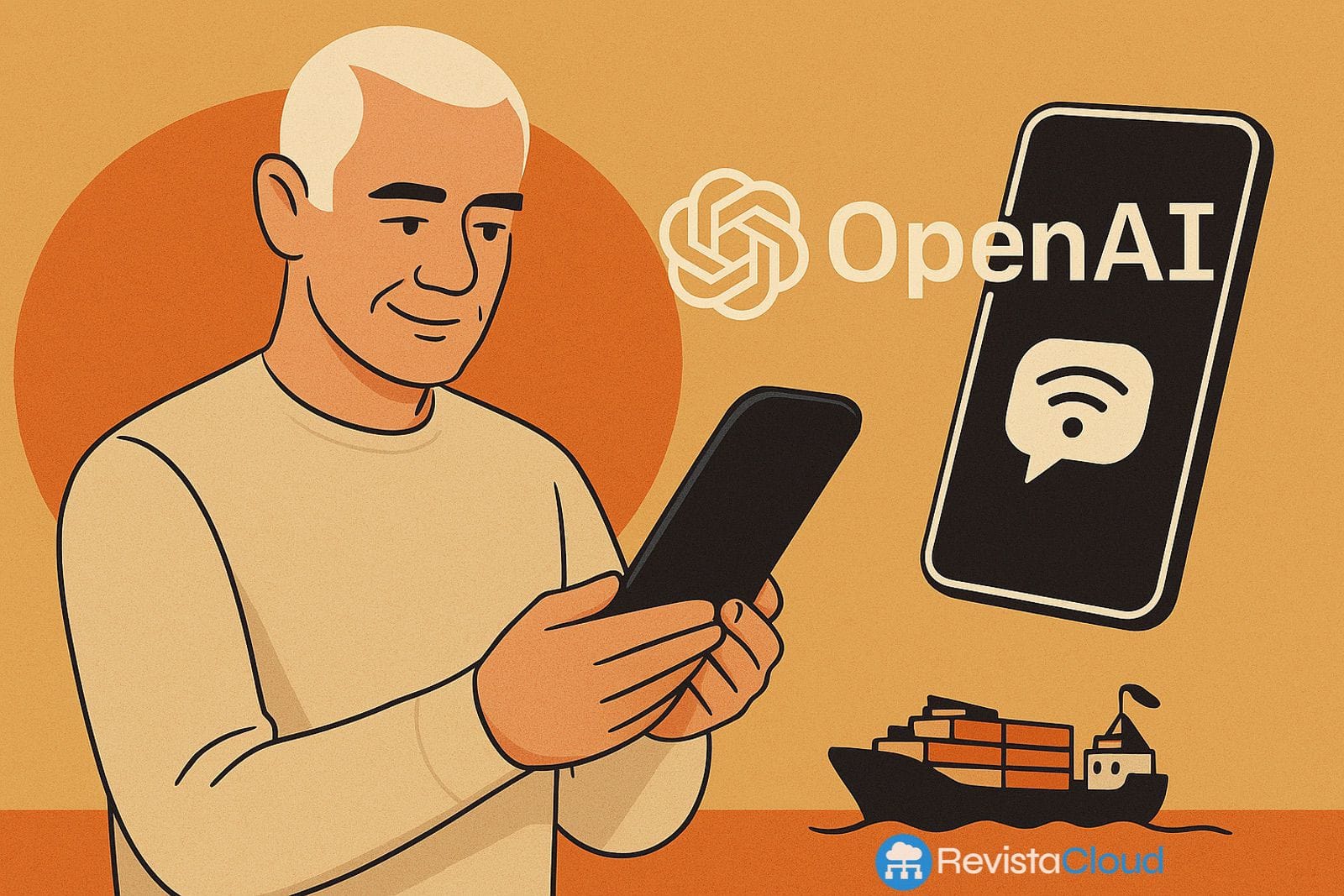In a move that could profoundly shake up the current balance of the tech market, OpenAI is negotiating the acquisition of the artificial intelligence hardware startup founded by Jony Ive, former chief design officer of Apple. The deal, valued at around $500 million, would allow the creators of ChatGPT to compete directly with the iPhone and Siri, strengthening their foray into physical AI-powered devices.
An Ambitious Project with Apple’s Signature
The startup in question, known as io Products, was created over a year ago by Ive along with OpenAI CEO, Sam Altman. Funded by Emerson Collective — the organization of Laurene Powell Jobs — and Ive himself, the company focuses on developing consumer products driven by AI voice assistants, including a screenless phone, whose nature has yet to be fully revealed.
While some sources claim that the device “is not a phone” in the traditional sense, it would represent a new way to interact with technology through voice, without the need for screens or graphical interfaces. This concept aligns with a growing trend aimed at replacing or complementing smartphones with more contextual, natural, and discreet conversational assistants.
OpenAI and Its Strategy to Compete with Apple
If the deal goes through, OpenAI would not only acquire innovative technology and designs but also the team of engineers and designers behind the project, many of whom are former Apple employees, including key figures like Tang Tan and Evans Hankey, both involved in the design of several iconic products from the Cupertino company.
The agreement would stipulate that io Products continue developing the devices while OpenAI provides the artificial intelligence layer to power them. Additionally, Jony Ive, through his design studio LoveFrom, would remain involved in the aesthetic and functional creation of the new products.
This move would place OpenAI in entirely new territory: consumer hardware manufacturing, a category that has so far been dominated by Apple, Google, Amazon, and Meta. However, the relationship between OpenAI and Apple is, at the very least, ambivalent: although both companies are collaborating on integrating ChatGPT into Siri since mid-2024, this potential acquisition could turn them into direct rivals.
A Crucial Moment for the AI Industry
OpenAI’s interest in entering the hardware market is no coincidence. With generative artificial intelligence becoming the epicenter of technological innovation, companies like Anthropic, Google (with Gemini), X (Twitter), Amazon, and Meta are doubling down on efforts to integrate AI into all their products.
But while most are betting on integrating AI into digital services or software, OpenAI seems determined to reinvent how we use physical devices, which could mark the beginning of a new era of smoother, more ubiquitous human-machine interaction centered on natural language.
Can Apple Stay Ahead?
The news comes at a difficult time for Apple, which has suffered a steep stock decline due to the impact of the new tariffs imposed by the Trump administration on products manufactured in Asia. Furthermore, its Siri assistant continues to be perceived as limited compared to ChatGPT, Claude, or Gemini, despite the advancements announced with Apple Intelligence and its recent rollout in new languages and devices.
Now, with its former design leader heading a project backed by the main rival in artificial intelligence, Apple might be facing a new type of competition. The company that has set the standard in design and usability for years is now confronting an era where artificial intelligence will be the central engine of hardware.
Conclusion
The possible agreement between OpenAI and Jony Ive represents much more than just a simple purchase: it is a statement of intent about the future of hardware and AI. A future where minimalist design, natural interaction, and the power of generative models could give rise to a new generation of devices capable of replacing smartphones as we know them.
If the acquisition materializes, we could be looking at the first truly serious competitor to the iPhone in over a decade. And this time, it’s not coming from Samsung, Google, or Huawei… but from the heart of Silicon Valley, with AI as its banner.
Source: wccftech

